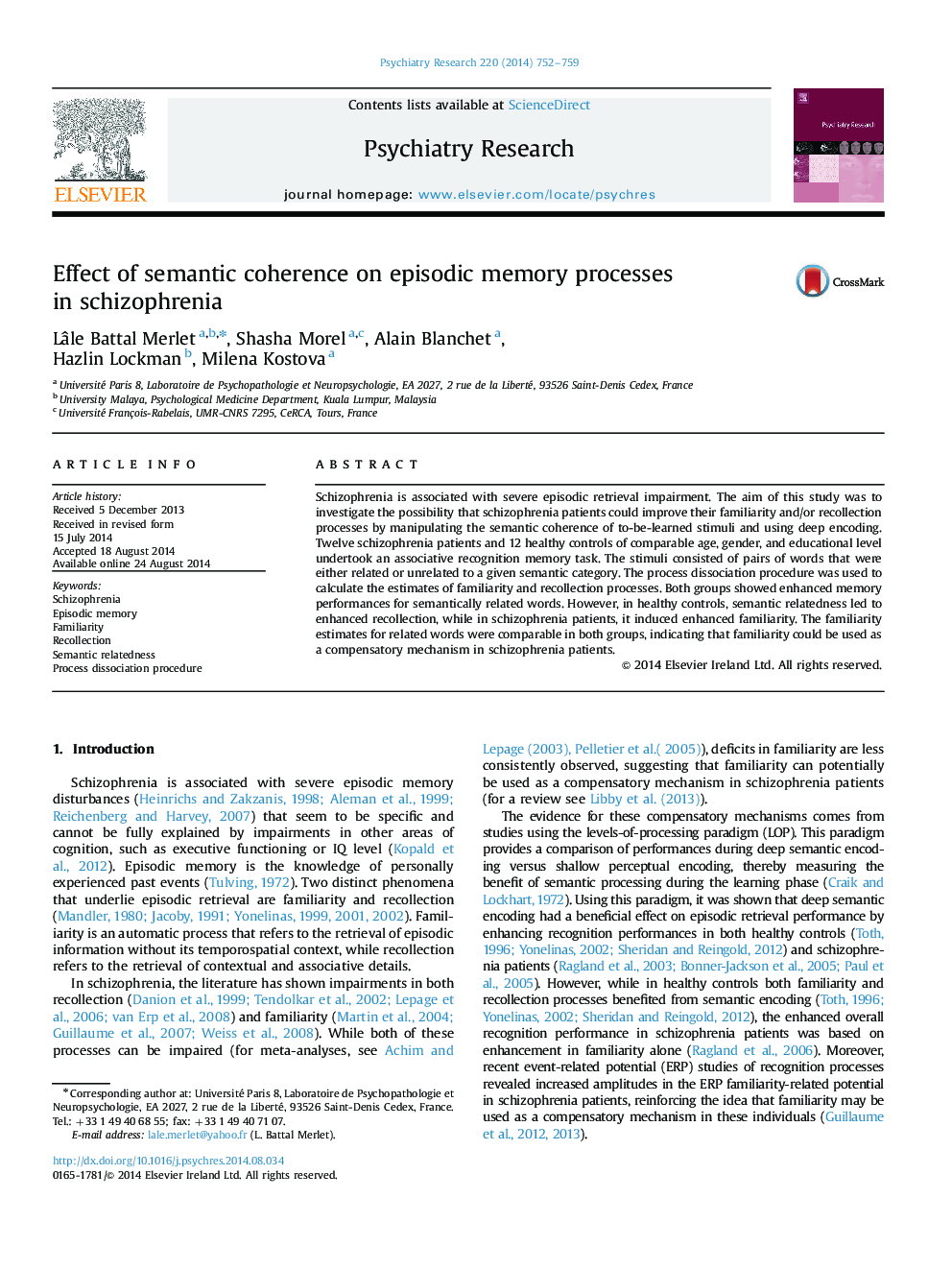| Article ID | Journal | Published Year | Pages | File Type |
|---|---|---|---|---|
| 6814506 | Psychiatry Research | 2014 | 8 Pages |
Abstract
Schizophrenia is associated with severe episodic retrieval impairment. The aim of this study was to investigate the possibility that schizophrenia patients could improve their familiarity and/or recollection processes by manipulating the semantic coherence of to-be-learned stimuli and using deep encoding. Twelve schizophrenia patients and 12 healthy controls of comparable age, gender, and educational level undertook an associative recognition memory task. The stimuli consisted of pairs of words that were either related or unrelated to a given semantic category. The process dissociation procedure was used to calculate the estimates of familiarity and recollection processes. Both groups showed enhanced memory performances for semantically related words. However, in healthy controls, semantic relatedness led to enhanced recollection, while in schizophrenia patients, it induced enhanced familiarity. The familiarity estimates for related words were comparable in both groups, indicating that familiarity could be used as a compensatory mechanism in schizophrenia patients.
Keywords
Related Topics
Life Sciences
Neuroscience
Biological Psychiatry
Authors
Lâle Battal Merlet, Shasha Morel, Alain Blanchet, Hazlin Lockman, Milena Kostova,
